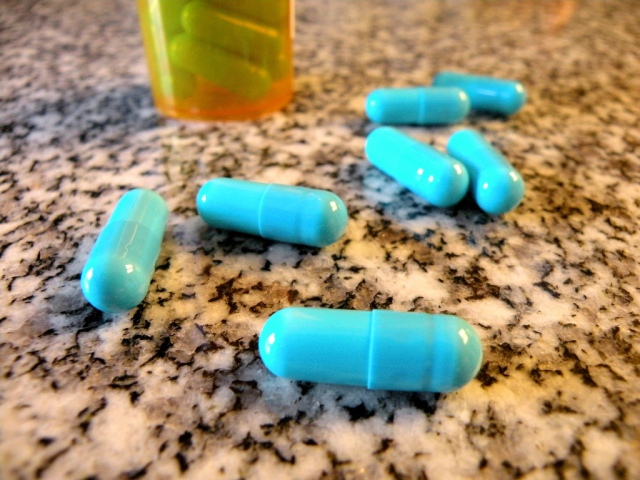 In the 1940’s, antibiotics were hailed as wonder drugs. “Syphilis is now curable!”, ran the posters. Yet in modern times, several dark sides of these drugs have come to light.
In the 1940’s, antibiotics were hailed as wonder drugs. “Syphilis is now curable!”, ran the posters. Yet in modern times, several dark sides of these drugs have come to light.
The widespread overuse of antibiotic therapy has driven the emergence of superstrong bacteria, like MRSA, that resist the activity of conventional antibiotics.
Antibiotic therapy is also troubled by the problematic core concept that it lacks specificity, and wipes out good and bad bugs alike. This is particularly worrying as we continue to discover just how much the trillions of good bugs that live in our gut contribute to our health and wellbeing, absorbing vitamins from our food, breaking down tough fibrous vegetables, working to prevent allergies and keeping bad bugs in check.
When good bugs are killed off by antibiotics, the gut ecosystem becomes remarkably disturbed. Large pools of sugary nutrients that the good bugs normally eat suddenly become available, forming an all-you-can-eat buffet for surviving bacteria. Unfortunately, the post-antibiotic apocalypse scavengers are often bad bugs, like Salmonella enterica and Clostridium difficile, which can cause unpleasant disease.
New research from Stanford University School of Medicine shows that both Salmonella enterica and Clostridium difficile use the same strategies to access these free pools of death sugars. Using genetic profiling, they found that in the wake of antibiotic therapy, the bad bugs increased their capacity to snack on fucose and/or sialic acid. Consequently, they were able to overgrow in the intestine to cause pooping nastiness.
While the community of good bugs began to be re-established around three days after antibiotic therapy, and the balance of good and bad bugs stabilised, eating probiotics packed with good bugs that are particularly adept at eating fucose and sialic acid during antibiotic therapy may prevent such pathogenic disturbances happening at all.
Ng KM, Ferreyra JA, Higginbottom SK, Lynch JB, Kashyap PC, Gopinath S, Naidu N, Choudhury B, Weimer BC, Monack DM, & Sonnenburg JL (2013). Microbiota-liberated host sugars facilitate post-antibiotic expansion of enteric pathogens. Nature, 502 (7469), 96-9 PMID: 23995682




